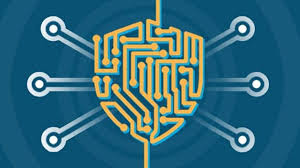The cost of cyber attacks and the value of investing in cyber security
In today’s digital age, the cost of cyber attacks is staggering. The value of investing in cyber security cannot be overstated. Cyber attacks not only lead to significant financial losses for businesses, but also result in reputational damage, legal consequences, and potential customer distrust. It is crucial for organizations to understand the true extent of the impact cyber attacks can have on their bottom line.
The financial cost of cyber attacks is multifaceted. The direct expenses include incident response, recovery, and potential ransom payments. However, the long-term financial repercussions often extend far beyond these immediate costs. Companies may suffer from lost revenue due to downtime, loss of intellectual property, or the need to invest in new security measures to prevent future attacks. Additionally, there are legal expenses and fines that can result from non-compliance with data protection regulations.
Furthermore, the intangible costs of cyber attacks are equally significant. A breach of customer data can lead to a loss of trust and loyalty, impacting customer retention and acquisition. The damage to reputation may result in decreased brand value and a loss of competitive advantage. Rebuilding trust and repairing a damaged reputation can be a time-consuming and expensive process.
Investing in cyber security is essential to mitigate the risks posed by cyber attacks. By implementing robust security measures and proactive monitoring, organizations can greatly reduce the likelihood and impact of successful attacks. The investment in cyber security is not just a cost, but rather an investment in the longevity and resilience of the business.
Cyber security measures include securing networks, implementing strong access controls, regularly updating and patching software, educating employees about security best practices, and conducting regular security audits. By staying ahead of evolving threats and investing in the right technology and expertise, organizations can enhance their ability to detect, respond to, and recover from cyber attacks.
In conclusion, the cost of cyber attacks is not limited to immediate financial losses. The long-term consequences, including reputational damage and legal ramifications, can be equally devastating. Investing in cyber security is not only a smart financial decision, but also a critical step in safeguarding the future of any organization. By understanding the true cost of cyber attacks and the value of investing in cyber security, businesses can make informed decisions to protect themselves and their stakeholders.
















.jpg)

